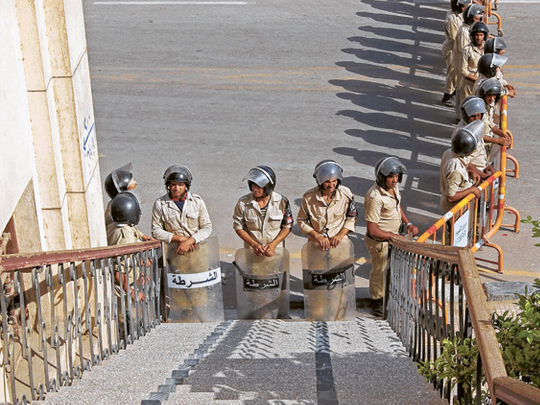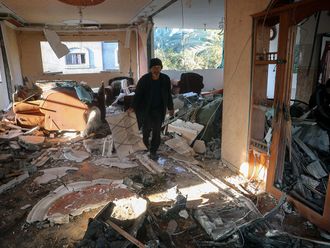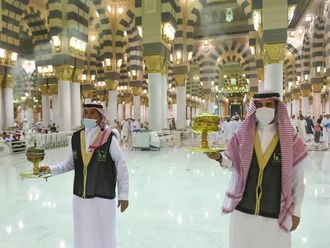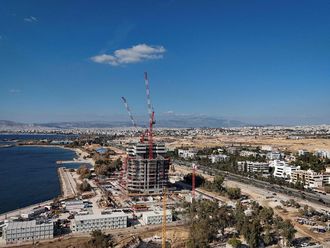
Cairo: As more than 7,000 candidates across Egypt are intensifying their campaigns for the legislative elections later this month, Christians in the country, who account for around 10 per cent of the 80 million population, are disappointed that political parties are fielding very few Coptic candidates.
President Hosni Mubarak's National Democratic Party has nominated 10 Christians in a list of 770 candidates. Neither has Al Wafd, Egypt's oldest liberal opposition party, fielded a significant number of Christian candidates.
"The stance of the ruling party in particular is not encouraging," said Ebrahim Boutros, a bishop of a church in central Cairo. "There are many qualified Copts who can make good members of the parliament. I do not know why the party has not nominated them," he told Gulf News.
Constitutional mandate
Prominent among the ten Coptic candidates fielded by the ruling party for the November 28 legislative elections is Minister of Finance Yousuf Boutros Gali, who was the only Christian who won a seat in the 2005 elections.
The Egyptian constiution gives the head of the state the right to appoint ten members of parliament. For decades, Egyptian presidents have used this privilege to appoint Coptic MPs.
Relations between Egypt's Muslim majority and Christians are usually good. Over recent years, however, there have been tensions — sometimes developing into deadly clashes — triggered by disputes over the construction of places of worship and conversions.
Six Christians were shot dead by a suspected Muslim attacker on the eve of Coptic Orthodox Christmas celebrations in the town of Najaa Hamadi in January. The suspect is on trial. Egyptian Christians also complain about being discriminated against in the allotment of top public posts, a claim vehemently denied by the Mubarak government.
"The Church does not interfere in politics. We encourage [Coptic] people to go to polls without asking them to vote for a certain candidate. We do not want a fanatical candidate from both sides to win. Whoever wins should work for all people, not to serve a certain group," Bishop Boutros said.
Meanwhile, Michael Muneer, a Coptic activist living in the US, has urged the Christian community in Egypt not to vote for the ruling party in the upcoming elections.
Marginalisation
"The party has not given enough attention to Copts' representation in the political life. This is a sign of deliberate marginalisation of the Copts," he said in a statement.
To Emmad Jad, a political expert at the state-run Al Ahram Centre for Strategic Studies, the talk about Muslim and Coptic representation in parliament is a sign of a flawed political system. "If there were a genuine interest in creating a civil state in Egypt where equal citizenship reigns supreme, such debate and religious intervention in politcs would be stopped," Jad told Gulf News.
"The ruling party has previously said it does not field Coptic candidates because they do not win in elections. The regime commits [vote] fraud for other categories. It could do the same if it wanted to secure seats for Copts."












